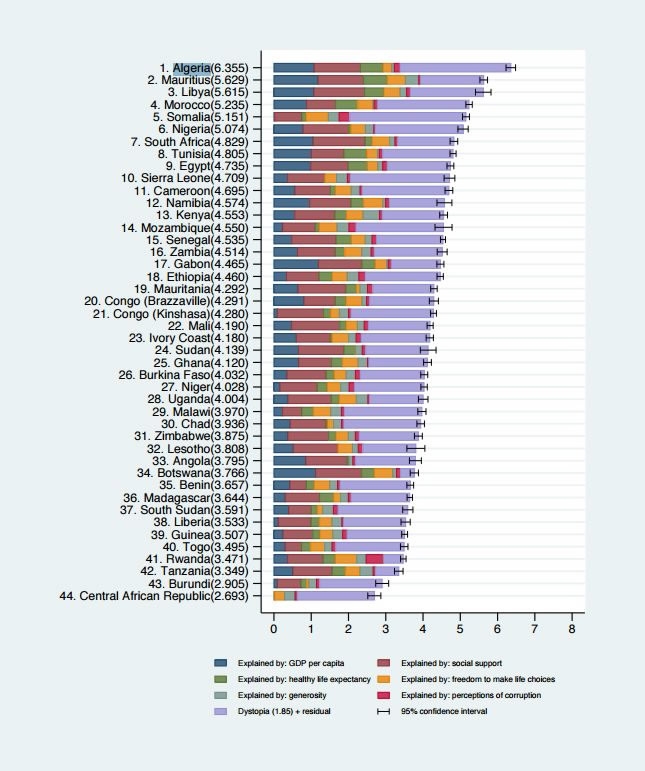By CGTN's Oliver Jarvis
Algeria is the happiest country in Africa, according to the World Happiness Report 2017.
In a comprehensive listing of nations, the table takes into account a range of factors that may affect a country's happiness, including: per capita GDP, social welfare, life expectancy, freedom to make life choices, generosity and perceptions of corruption. The country is then given a number between 1 to 10 (the latter being the highest) to gauge the specific country's happiness.
Norway took the top spot with a rating of 7.54, followed by Denmark (7.53), Iceland (7.5) and Switzerland (7.4). Overall, Europe appeared to claim the highest ranks.
Only six African countries were among the top 100. Meanwhile, they made up almost all of the lowest 10 ranked countries for happiness.
At the very bottom of the list of 155 countries, which is put together by the Sustainable Development Solutions Network for the United Nations, are the Central African Republic (2.6), Burundi (2.9), Tanzania (3.3), Rwanda (3.4) and Togo (3.5). Experts argue that the poor performance of these countries is based on their current political situation, and other facts like civil unrest, corruption and poverty.

World Happiness Report 2017
The report outlines constant disappointment as one of the main reasons for Africans’ negative sentiments.
Algeria ranks 53rd on the list with a rating of 6.4; next in line is Mauritius with a collective rating of 5.63. They are then followed by Libya (5.61), Morocco (5.2), Somalia (5.1), Nigeria (5), South Africa (4.82), Tunisia (4.8), Egypt (4.73), and Sierra Leone (4.7) to make up the 10 happiest African countries.
Algeria’s position as a leading North African oil-exporting country, with low-lived poverty, could be a reason for people's happiness. Algeria also received high ratings from children, who were happy with their family life in the country. On the flipside, Ethiopian kids had the "least favorable" childhood and did not feel completely safe at home.









